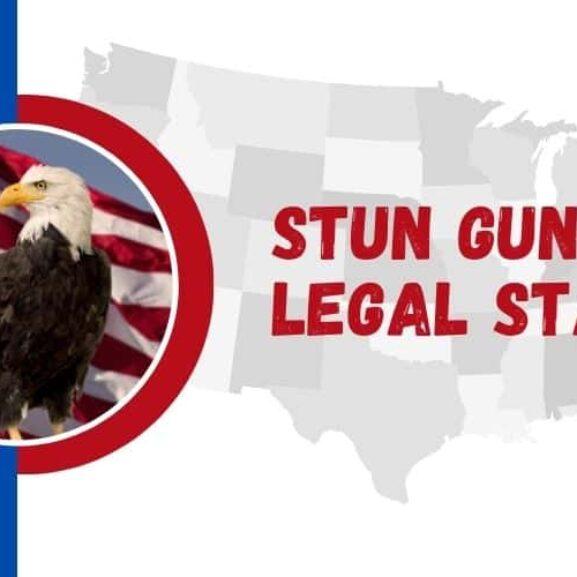Table of Contents
- Understanding West Virginia’s Legal Framework for Concealed Stun Guns
- Permits and Eligibility Requirements for Concealed Stun Gun Carriers
- Safe Usage and Carrying Guidelines for Concealed Stun Guns in West Virginia
- Recommended Best Practices for Compliance and Responsible Ownership
- To Conclude
Understanding West Virginia’s Legal Framework for Concealed Stun Guns
West Virginia’s approach to concealed stun guns is notably clear-cut compared to other states. The law permits residents to carry stun guns without a permit, highlighting the state’s commitment to personal safety and self-defense rights. However, it’s essential to understand that while carrying concealed stun guns is generally lawful, certain limitations and exceptions apply, especially regarding locations where any weapon is explicitly prohibited. For example, stun guns are banned in certain government buildings, schools, and correctional facilities. Respecting these boundaries helps ensure compliance and avoids legal complications.
Key points to consider include:
- West Virginia does not require a permit or license to carry a concealed stun gun.
- Usage of stun guns must be strictly for self-defense purposes.
- Carrying stun guns is prohibited in specific restricted areas such as courthouses and schools.
- Individuals convicted of felonies may face restrictions on carrying or owning stun guns.
Understanding these nuances is crucial for responsible ownership. Being informed not only protects your rights but also ensures you use stun guns legally and ethically within West Virginia’s legal framework.
Permits and Eligibility Requirements for Concealed Stun Gun Carriers
In West Virginia, carrying a concealed stun gun does not require a specific permit, making it more accessible for individuals seeking non-lethal self-defense options. However, despite the absence of a licensing requirement, it’s essential to understand the general restrictions and legal responsibilities associated with stun gun possession. Individuals must be at least 18 years old to legally carry a stun gun, and certain categories of people – including convicted felons and those prohibited from firearm possession – are barred from carrying these devices. Additionally, stun guns are strictly prohibited in certain locations such as schools, correctional facilities, and federal properties, aligning with larger statewide safety protocols.
While West Virginia simplifies the permit process compared to other states, vigilance in meeting eligibility criteria remains crucial. Carriers should be mindful of these key considerations:
- Proof of legal age (18+) without disqualifying criminal convictions
- Adherence to location-specific restrictions where stun gun use is forbidden
- Understanding local ordinances that may impose additional limits
By ensuring compliance with these basic conditions, residents can confidently carry stun guns for personal protection while navigating West Virginia’s legal landscape.
Safe Usage and Carrying Guidelines for Concealed Stun Guns in West Virginia
When carrying a concealed stun gun in West Virginia, it’s crucial to prioritize both safety and compliance with state laws. Always ensure your device is kept in a secure holster or case designed specifically for stun guns to prevent accidental discharge. Keep the stun gun easily accessible but hidden from plain sight to avoid any unwanted attention or misunderstandings with law enforcement. Regularly check the device’s battery and functionality, and avoid handling it carelessly, especially in public spaces. Remember, responsible handling not only protects you but also those around you.
Key Tips for Safe Usage and Transport:
- Store the stun gun separately from other firearms or weapons to avoid confusion.
- Do not brandish or display your stun gun in situations where it isn’t necessary for self-defense.
- Familiarize yourself with local restrictions, as some public areas may prohibit the use or possession of stun guns.
- Practice discreetly, so you’re comfortable deploying the device quickly and efficiently if the need arises.
Recommended Best Practices for Compliance and Responsible Ownership
To navigate West Virginia’s concealed stun gun laws responsibly, always ensure you remain well-informed of current regulations and local ordinances. Carry your device discreetly and avoid public places where stun guns might be prohibited, such as schools or government buildings. Practice safe handling by regularly maintaining your stun gun and keeping it accessible for emergencies without making it a public spectacle. Remember, sound judgment and respect for the law are paramount when it comes to self-defense tools.
Consider these best practices for responsible ownership:
- Ensure you have a valid permit if required and carry it when concealing your stun gun.
- Participate in training sessions to understand the device’s proper use and limitations.
- Store the stun gun securely when not in use to prevent unauthorized access, especially by minors.
- Stay updated on legal changes by regularly reviewing West Virginia state resources or consulting legal experts.
To Conclude
In summary, understanding West Virginia’s concealed stun gun laws is essential for anyone considering this form of self-defense. By staying informed about the state’s regulations, including permit requirements and where stun guns are allowed, you can ensure that you remain compliant while protecting yourself responsibly. Always remember to stay updated, as laws can change, and when in doubt, consulting local authorities or legal experts is a smart move. Stay safe and informed!Check Our Other Blogs
- StunGun – Your Trusted Source for Stun Guns, Laws, and Self-Defense Tips
- PepperSprayLaws – Your Trusted Resource for Pepper Spray Information
- StunGunLaws – Your Trusted Guide to Stun Gun Legality and Safety





